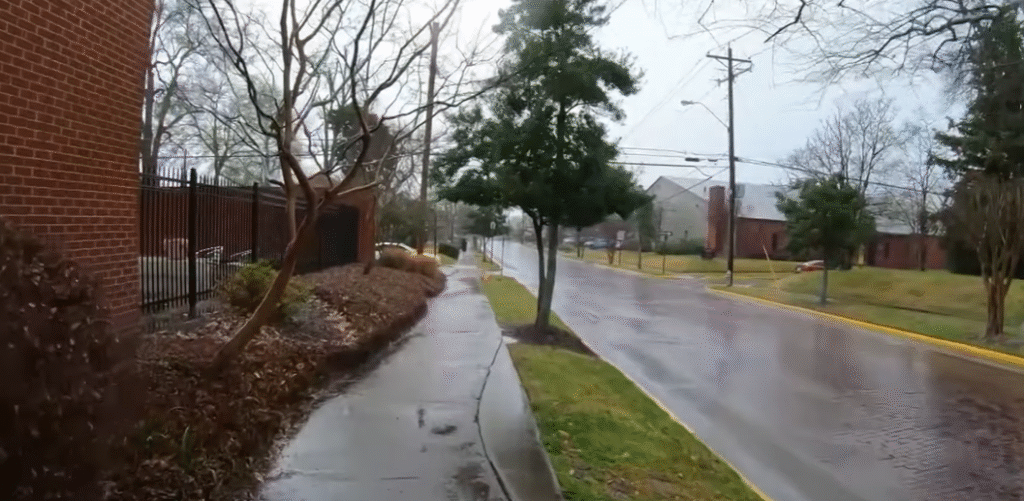Although Mississippi Administrative Code 15C-16.003 may seem like a cryptic legal allusion, it is actually a convincing work of fiction. This fictitious code was used in text messages sent to thousands of Mississippians, informing them that failure to pay a “outstanding traffic fine” would result in the suspension of their vehicle registration. Because it combined familiarity, formality, and fear—three elements that foster digital deception—the scam was incredibly successful.
At first glance, the messages appeared to be official. They said they were from the Mississippi Department of Vehicles, which is a nonexistent department. If payments weren’t made by a certain date, the texts threatened severe penalties, harm to the recipient’s credit score, and license suspension. Scammers made their messages seem remarkably real by using the fake “Administrative Code 15C-16.003,” which gave their hoax a sense of official legitimacy that even astute readers found hard to doubt.
As soon as the phony notices started going around, law enforcement from DeSoto County to Pontotoc acted quickly. They were very clear in their warnings: there is no administrative code associated with that number, and the Mississippi Department of Vehicles is a fake. The Mississippi Department of Public Safety, which is in charge of licensing and traffic enforcement in the state, has stated that it never sends unsolicited texts regarding payments.
Mississippi Administrative Code 15C-16.003 – Case Overview
| Type | Fraudulent Code Used in Scam |
|---|---|
| Name Used in Scam | Mississippi Administrative Code 15C-16.003 |
| Real Legal Status | Not an actual code under Mississippi law |
| Used By | Online and text-message scammers |
| Typical Message | Claims unpaid traffic fines under “Mississippi Department of Vehicles” |
| Associated Threats | License suspension, registration revocation, credit score damage |
| Real Agency | Mississippi Department of Public Safety (Not “Department of Vehicles”) |
| Confirmed By | Mississippi Secretary of State and local law enforcement |
| Authentic Reference | Mississippi SOS Administrative Code Search |

The genius of the scam is its comprehension of how people respond to urgency that sounds official. The statement, “In accordance with Mississippi Administrative Code 15C-16.003, your registration will be suspended if you do not make payment by June 8,” causes anxiety. Most drivers don’t pause to consider the source when they read it on their phones in between meetings or errands. Rather, they click on the link, which is precisely what scammers rely on.
Victims are taken to websites that imitate authentic government portals when they click. Users are frequently prompted to enter personal information and credit card details on pages with blue-and-white designs and seals that appear official. Because the plan seems routine—an administrative annoyance rather than a clear danger—it works remarkably well.
Experts in cybersecurity refer to this as synthetic authority, which is the process of creating legitimacy using well-known structures and precise language. Phishing emails masquerading as bank alerts or tax agencies use the same psychological trick. This technique has significantly improved, becoming a refined operation that mimics the tone and texture of actual government communication, as evidenced by Mississippi’s fake code scam.
Online fraud has evolved over the last ten years from crude grammar to sophisticated impersonation. These days, messages are grammatically perfect and occasionally even customized. A good example are the Mississippi 15C-16.003 texts, which are succinct, assured, and carefully structured to inspire confidence. According to experts, this development represents a new wave of scams that can adapt their language to local audiences thanks to data analytics and AI language models.
Reactions from the public have been mixed; some have laughed at the ridiculousness of the nonexistent “Department of Vehicles,” while others have been left feeling uneasy and wondering if they missed a valid fine. Significant social repercussions showed how easily digital credibility can be faked. The task for law enforcement has changed from apprehending con artists to teaching the public how to confirm legitimacy.
Particularly proactive have been the local police forces. Residents were advised in a public notice released by the Pontotoc Police Department to remove the messages and avoid clicking on any links. Practical advice was included with the advisory: never reply to unknown numbers, always view urgency as a warning sign rather than an excuse to act hastily, and only check any purported ticket or fine through official state portals.
Additionally, the Better Business Bureau voiced their opinions by using its Scam Tracker system to report several incidents. The group referred to the plan as “a textbook example of administrative deception,” highlighting the fact that these types of scams prey on fear rather than curiosity. Mississippi’s rural communities, where people might not regularly use online services and thus find such messages more credible, were disproportionately impacted, according to BBB data.
The 15C-16.003 scam has wider ramifications that go beyond Mississippi’s boundaries. Experts in cybercrime predict that as con artists continue to combine social engineering and technology, this kind of impersonation will become more prevalent. The strategy is very effective because it is low-cost, spreads quickly through mass texting, and takes advantage of people’s almost universal fear of bureaucratic penalties.
Despite its concerning prevalence, there is a positive result: people are becoming more aware of digital issues. Local media and state agencies have started working together more efficiently, releasing educational campaigns and real-time alerts to assist citizens in identifying deceptive language. This proactive approach has been incredibly successful in stopping similar scams before they get out of control.
It’s interesting to note that discussions concerning the communication methods of actual government institutions have also been triggered by the phony code. Many citizens now expect public agencies to provide more transparent digital verification, such as statewide alert systems with uniform formatting, secure links, or official email domains. Despite being annoying, the incident might eventually result in noticeably better communication standards that make scams simpler to identify.

